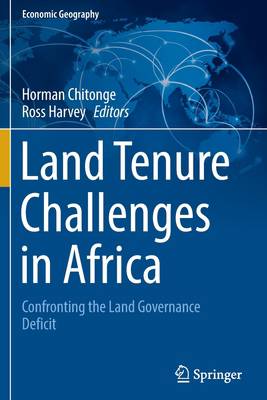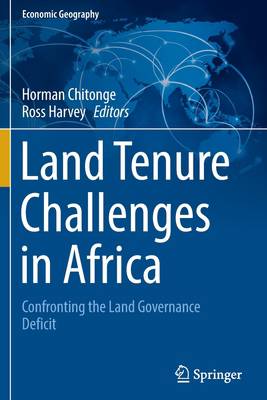
- Afhalen na 1 uur in een winkel met voorraad
- Gratis thuislevering in België vanaf € 30
- Ruim aanbod met 7 miljoen producten
- Afhalen na 1 uur in een winkel met voorraad
- Gratis thuislevering in België vanaf € 30
- Ruim aanbod met 7 miljoen producten
Zoeken
Land Tenure Challenges in Africa
Confronting the Land Governance Deficit
€ 116,45
+ 232 punten
Omschrijving
This book provides a significant contribution to the literature on land reform in various African contexts. While the economic evidence is clear that secure property rights are a necessary condition for catalysing broad-based economic development, the governance process by which those rights are secured is less clear. This book details the historical complexity of land rights and the importance of understanding this history in the process of trying to improve tenure security. Through a combination of single country case studies, comparative case studies and regional comparisons, the book is unequivocal that good governance is paramount for improving the performance of land reform programmes. All attempts at moving towards more formal secure tenure require congruence with informal norms, beliefs and values, and a set of clear systems and processes to avoid corruption and unintended negative consequences.
Specificaties
Betrokkenen
- Uitgeverij:
Inhoud
- Aantal bladzijden:
- 339
- Taal:
- Engels
- Reeks:
Eigenschappen
- Productcode (EAN):
- 9783030832803
- Verschijningsdatum:
- 3/01/2023
- Uitvoering:
- Paperback
- Formaat:
- Trade paperback (VS)
- Afmetingen:
- 156 mm x 234 mm
- Gewicht:
- 508 g

Alleen bij Standaard Boekhandel
+ 232 punten op je klantenkaart van Standaard Boekhandel
Beoordelingen
We publiceren alleen reviews die voldoen aan de voorwaarden voor reviews. Bekijk onze voorwaarden voor reviews.










